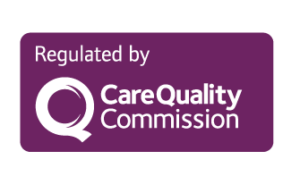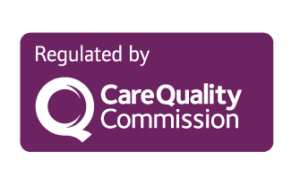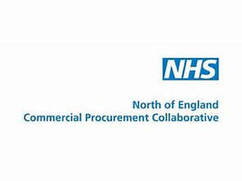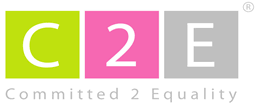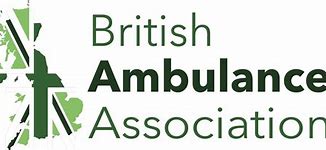Disclosure and Barring Service - we can provide you with this service!
Disclosure Service
Disclosure is now an essential element in the recruitment process for a large number of organisations. If your organisation recruits individuals that come into contact with vulnerable people and especially children, then it's likely your organisation has new statutory requirements and responsibilities.
Our aim is to provide your organisation with a range of services to help you to meet those obligations and to fulfil your responsibilities. In doing so we provide many organisations with a solution to ensure compliance is achieved with the minimum effect upon resources. We provide services that offer -
Does your Organisation Need Us ?
If you suspect that your organisation will need to carry out disclosure checks on your applicants because you offer jobs that will involve working with children or adults, then you may need to enlist the services of the DBS.
To access these services your organisation must follow one of two routes:
Regulated Positions These are positions specified in the Criminal Justice and Court Services Act: Provision for the protection of children. Individuals working in a regulated position are required by law to have a higher level disclosure check in order for them to be checked against the Department of health list and the Department for Education and skills list. It is now a statutory requirement for people working in regulated positions to be checked against these lists following the Protection of Children Act 1999.
Working in a regulated position
The regulated positions that are exempted from the provisions of the ROA are specified by category codes 01 to 08 below.
1. A position whose normal duties include work in one of the following establishments:
3. A position whose normal duties include caring for, training, supervising or being in sole charge of children.
4. A position whose normal duties involve unsupervised contact with children under arrangements made by a responsible person.
5. A position whose normal duties include caring for children under the age of 16 in the course of the children's employment.
6. A position whose a substantial part of normal duties includes supervising or training children under the age of 16 in the course of the children's employment.
7. One of the following positions:
Disclosure is now an essential element in the recruitment process for a large number of organisations. If your organisation recruits individuals that come into contact with vulnerable people and especially children, then it's likely your organisation has new statutory requirements and responsibilities.
Our aim is to provide your organisation with a range of services to help you to meet those obligations and to fulfil your responsibilities. In doing so we provide many organisations with a solution to ensure compliance is achieved with the minimum effect upon resources. We provide services that offer -
- Streamlined application processing.
- An advisory service for safer recruitment.
- A safe storage, handling and disposal service.
Does your Organisation Need Us ?
If you suspect that your organisation will need to carry out disclosure checks on your applicants because you offer jobs that will involve working with children or adults, then you may need to enlist the services of the DBS.
To access these services your organisation must follow one of two routes:
- By registering to become a Registered Body.
- By enlisting the services of an Umbrella Body such as Exclusive.
- Due to the nature of your staff turnover, your organisation is only likely to make a few applications and so the registration fee of £300 is uneconomical.
- Your organisation lacks the necessary administrative resources.
- There is no one in your organisation with the relative expertise to assess the information contained within a disclosure and therefore to fulfil the role of Lead counter-signatory in a Registered Body.
- You do not feel comfortable with having access to such sensitive information and you would prefer not to see the information on your staff that is not relevant to their positions, in order to not harm good working relationships.
- Your organisation will not be able to provide the necessary storage, handling and disposal provisions required to be in accordance with the Code of Practice.
- Undertaking this service yourself will be too time consuming and you would simply rather have another organisation take care of this for you.
Regulated Positions These are positions specified in the Criminal Justice and Court Services Act: Provision for the protection of children. Individuals working in a regulated position are required by law to have a higher level disclosure check in order for them to be checked against the Department of health list and the Department for Education and skills list. It is now a statutory requirement for people working in regulated positions to be checked against these lists following the Protection of Children Act 1999.
Working in a regulated position
The regulated positions that are exempted from the provisions of the ROA are specified by category codes 01 to 08 below.
1. A position whose normal duties include work in one of the following establishments:
- An institution which is exclusively or mainly for the detention of children
- A hospital which is exclusively or mainly for the reception and treatment of children
- A care home, residential care home, nursing home or private hospital which is exclusively or mainly for children
- An educational institution
- A children's home or voluntary home
- A home provided under 82(5) of the Children Act 1989
3. A position whose normal duties include caring for, training, supervising or being in sole charge of children.
4. A position whose normal duties involve unsupervised contact with children under arrangements made by a responsible person.
5. A position whose normal duties include caring for children under the age of 16 in the course of the children's employment.
6. A position whose a substantial part of normal duties includes supervising or training children under the age of 16 in the course of the children's employment.
7. One of the following positions:
- Member of the governing body of an educational institution
- Member of a relevant local government body
- Director of social services of a local authority
- Chief education officer of a local education authority
- Charity trustee of a children's charity
- Member of the Youth Justice Board for England and Wales
- Children's Commissioner for Wales or deputy Children's Commissioner for Wales
- Member or chief executive of the Children and Family Court Advisory and Support Service (CAFCASS)
